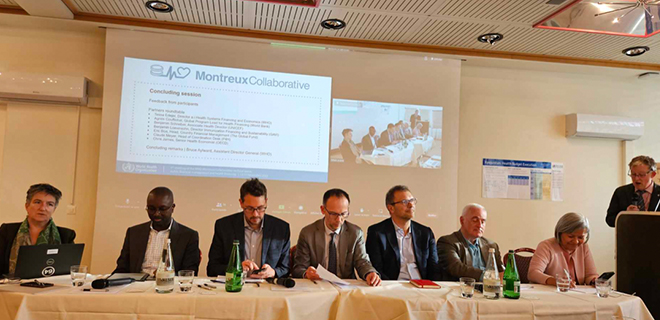The Montreux Collaborative is a WHO led platform for collaboration between countries and development partners. It aims to generate and disseminate global and country evidence on how to make budgets work for health, with a specific focus on transforming budget formulation and execution practices to make them more agile and responsive to health sector needs.
The main objectives of the 14-16 November 2023 meeting in Montreux were these:
- Take stock of lessons from COVID-19 for public financial management (PFM) and health financing reform, and identify PFM features conducive to resilient systems
- Deepen the understanding of PFM requirements for effective primary health care financing
- Unpack health budget execution issues and discuss joint solutions between finance and health stakeholders
The P4H Coordination Desk was invited to provide input to the partners’ roundtable during the concluding session on Thursday 16 November. The following 8 points were made, based on P4H-CFP and other stakeholders’ consultation:
- The PFM agenda should be systematically included in the terms of reference of P4H-CFPs
- The P4H Network regularly organizes joint health financing capacity building in countries, and, during the meeting in Montreux, a particular need for PFM was spotted at subnational
- The P4H Network will contribute to knowledge management and documentation of PFM reforms on www.p4h.world country pages and on social media P4H uses
- A link between the Montreux Collaborative and the social protection and PFM community (www.socialprotection-pfm.org) could be established for exchange of best practices and consolidation within the social sectors
- A clarification of PFM terminology between country officials and development partners as well as technical and decision-making levels could be very useful
- The alignment of financial processes among development partners with national budget cycles is often requested but remains very difficult in low- and middle-income countries
- Development partners should adopt national budget execution procedures to avoid multiplicity, bottlenecks and low execution rates
- Civil society organizations could be involved as neutral monitoring bodies of development partners and countries commitments


